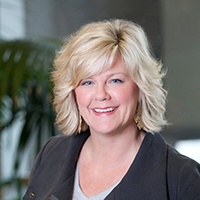“Creative accounting”… When you search Wikipedia for “cooking the books,” you are cross referenced to creative accounting. It’s interesting to me that this euphemistic term has such a negative connotation. It has long been a way of referencing accounting practices that may literally uphold the laws and regs under which we practice, but often practices that miss the intent, or spirit, of the law. I want to challenge this way of thinking about creative accounting. Why? Because I know that creativity in the accounting profession is a requirement—we’re not compromising ethical standards, not at all. But the concept of creativity means understanding that business as usual is not at all the business of the future. Or, as we say at HORNE, status quo is not an option!
With a large compliance burden, it seems we are always running in historian mode. But gone are the days where that is enough. I can no longer add real, lasting value if I am only reporting on what happened in my client’s business last year. We must collaborate with our clients to be creative in order to be relevant for the future. We need quiet time to think, plan, dream, create… This can be a huge struggle in our business.
Accountants are commonly characterized as “left brainers.” While there is some truth that left brain tendencies can lead a person to choose an accounting career, we are not all created equal AND each of us has to learn to use both sides of our brain to our maximum advantage. It requires effort for many to cross over. Even as I write this, I am forced to get away from the tasks of the day and allow myself time to think in the abstract. It doesn’t come natural for many of us, but it is incredibly freeing when you allow yourself to purposefully explore that opposite/non-dominant side of the brain. Running towards deadlines simply squashes any chance at tapping this resource in our brains. I truly believe if we engage both sides effectively we can create things we never imagined.
At the HORNE accounting advisory firm, when we talk about “creativity” it usually comes in the form of “Forward Thinking” or a “Windshield View”—both are building blocks of the Wise Firm we are building. Forward thinking means we are continuously working to anticipate needs, and then to preactively (that’s a Dan Burrus term) prepare and change accordingly. Having a windshield view means we are focused on where we are going, planning for the future and doing what hasn’t been done before. We take risks. And we’re doing our best to eliminate, “This is how we’ve always done it,” from our vocabulary.
As we strive for flexibility in our business and our plate is full, what is most often the first thing to go? Think time! I would challenge us all to schedule this time into our days. Push yourself outside your box. Embrace the non-dominant side of your brain. Create something bigger than yourself and bring others along on your journey.
Bottom line, creativity is not only possible, it’s an absolute requirement!
About the Author
Marsha Dieckman is a big picture thinker who also happens to be really good at details—a powerful combination that is only outweighed by her servant’s heart. Her willingness to ask hard questions, try new things and challenge old ways of thinking is pushing our firm forward.





Leave A Comment